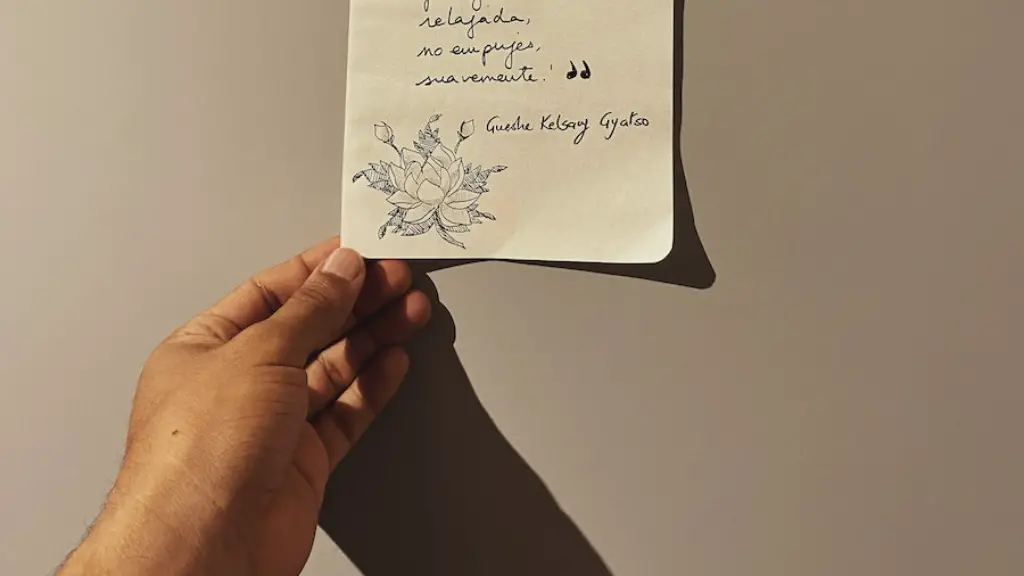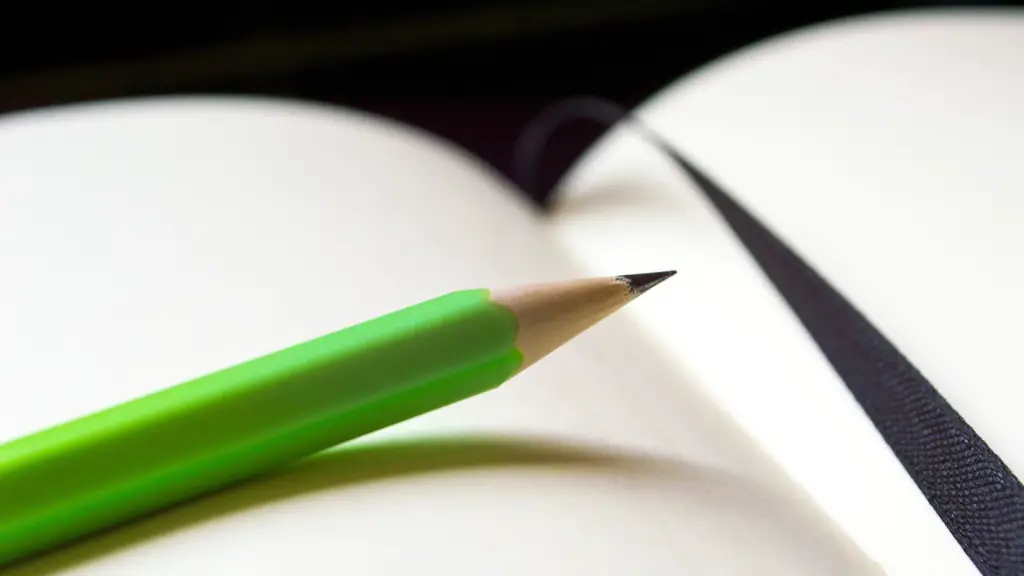Introduction
Writing a poetry book proposal can be a daunting task for any aspiring poet. Often, potential publishers are looking for something more than just a few poems or a collection of your work. In order to give your work the best chance to be published, it is essential to craft a well-conceived book proposal that showcases your talent as an emerging poet, as well as conveys why your project is a good fit for a publisher. Writing a book proposal takes more than just creative expression; it also provides a key insight into the business of publishing. By taking the time to craft your proposal, you can ensure that it will be grounded in a strong understanding of the publishing industry and the opportunities available to you.
Researching Potential Publishers
The first step to writing a strong book proposal is to research potential publishers in order to find the right publisher for your project. There are several ways to do this, including connecting with contacts already in the publishing world, exploring the services of literary agents, and conducting research online. It is important to provide the publisher with all the information they need to make an educated decision about whether or not to accept your book proposal.
Outlining Your Proposal
Once you’ve researched potential publishers, the next step is to prepare an outline of your book proposal. A good outline should include the introduction and overview, a clear description of your poetry project, literary merit of your project, target audience and how you plan to market it, biographical information and contact details, as well as potential endorsements for your project. It is essential to be as detailed and concise as possible, as publishers often make their decisions quickly.
Writing and Formatting Your Proposal
Once you’ve outlined your book proposal, it’s time to begin writing. Make sure to include a compelling introduction, explaining why your project is special and different from other poetry books. This is also the place to share details about your target audience and what makes your project unique. Additionally, provide a strong overview of your project, which includes all the details that you outlined in the outline. Finally, be sure to include a list of sample poems and a proposed table of contents for the book.
When formatting your proposal, make sure to use a professional font, such as Times New Roman or Arial, and keep your layout and positioning consistent throughout. Additionally, use bullet points and subheadings when needed, and include a title at the beginning or end of the document.
Alternate Markets and Strategies
In addition to submitting your book proposal to traditional publishers, there are a number of other alternate markets that can provide great opportunities for aspiring poets. These include self-publishing, e-publishing or creating an audiobook version of your work. Each of these markets can provide their own unique advantages and reach a different set of readers.
Engaging With The Publishing World
Once you’ve written and formatted your book proposal, it’s time to engage with the publishing world. Make sure to stay in touch with relevant contacts, such as literary agents and book scouts, and attend poetry readings and literary events. Additionally, it’s a good idea to build an online presence, create a website and join social media networks such as Twitter and Facebook. This will give you the opportunity to introduce your work to potential publishers and readers, as well as build a strong network in the poetry world.
Submitting Your Proposal
Once you’ve done your research, written the proposal and built your network, it’s time to submit your proposal to potential publishers. When submitting a book proposal, make sure to read the publisher’s submission guidelines carefully, and include all materials required. Additionally, make sure to follow up within a few weeks if you haven’t received a response, as this could indicate that your proposal got lost in the mail or wasn’t received.
Identifying a Literary Agent
An important step when writing a book proposal is to identify a literary agent. This is especially critical for an emerging poet, as many larger publishing houses often require a literary agent for submission of book proposals. When searching for an agent, make sure to research their past clients, their experience working with poets, and their track record for successful book deals. Additionally, make sure to contact literary agents that are knowledgeable about the specific genre that your book project fits into.
Editing and Revising your Proposal
Once you’ve completed the book proposal, it’s important to take the time to edit and revise it. Make sure to review the proposal carefully for spelling and grammar mistakes, as well as any factual inaccuracies. Additionally, revise the proposal in order to ensure that it is as engaging and informative as possible. Finally, make sure to proofread the document a few times before submitting it to the publisher.
Networking and Promotion
Once your book proposal has been accepted and your book project is underway, it is time to focus on networking and promotion. Make sure to reach out to other poets who can provide advice and assistance, as well as build relationships with potential readers online. Additionally, take advantage of opportunities to speak in person at poetry readings and book clubs, in order to help build an audience and increase the visibility of your work.
Making Connections With Bookstores
When publishing a book, it is essential to create connections with local and online bookstores. Make sure to contact the bookstores in your area, as well as those further away, to inquire about potential participation in book signings. Additionally, take advantage of online promotion such as Amazon, Goodreads and other book retailers, in order to expand your reach and widen your audience. Finally, consider creating an e-book version of your project as a way to reach even more readers.
Understanding the Publishing Process
The key to successfully navigating the publishing process is to thoroughly understand it. Take the time to research the process in order to understand how to submit your manuscript, how publishers choose projects, and how authors become successful. Additionally, make sure to stay up to date on the latest trends and news in the publishing world, in order to gain a better understanding of what is happening in the world of publishing.
Connecting With Other Poets
Writing and publishing a book can be a lonely road. Make sure to connect with fellow poets who can provide support and advice. Join writing groups and attend group readings, and take advantage of the power of social media in order to connect with other poets. Additionally, consider joining a professional organization such as the Academy of American Poets or the Poetry Society of America, in order to gain access to resources and information.
Marketing and Promoting Your Poetry Book
Marketing and promoting your book is a crucial step in the publishing process. Utilize your existing relationships and networks to promote your work, as well as explore potential opportunities for book tours, literary festivals and other public events. Additionally, make sure to create a meaningful website and social media presence, in order to provide potential readers with information about your work and connect with them on a personal level.
Publishing and Selling Your Book
Once your book has been published, it’s essential to take the necessary steps to ensure that it is as successful as possible. Consider creating a limited-edition run of your book to create a sense of urgency, as well as explore local bookstores and libraries as potential outlets for selling your work. Additionally, explore the possibilities of international distribution, in order to publication your poetry to a wider range of readers. Finally, make sure to keep track of your book’s progress and update your publisher on sales and promotion in order to ensure that they’re taking the necessary steps to ensure your book’s success.



